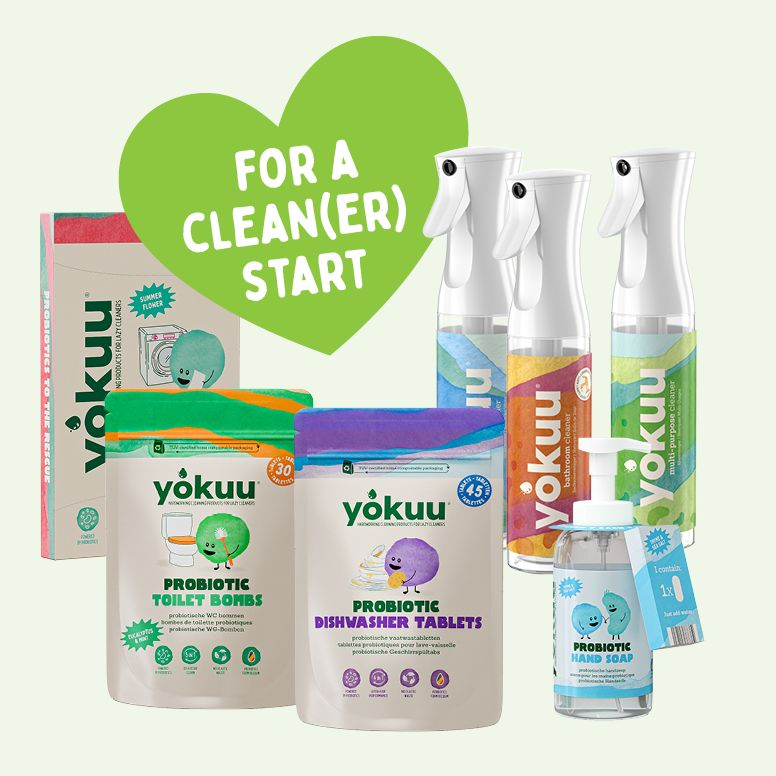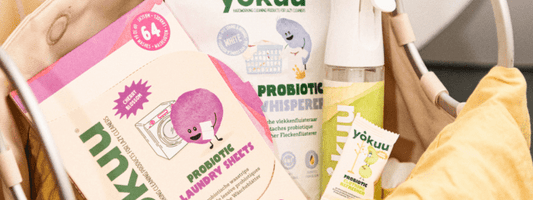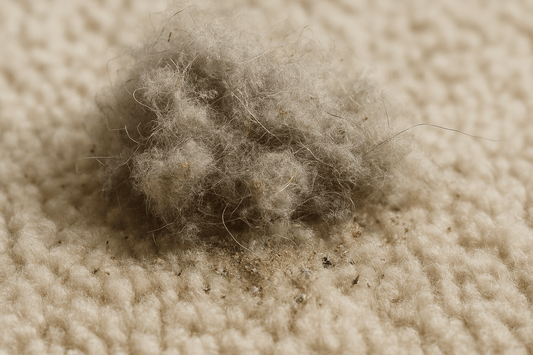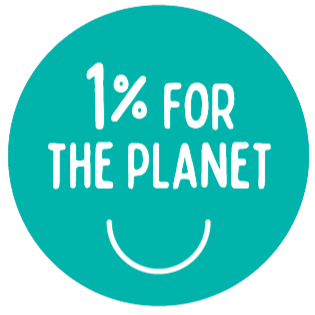These days, we see product labels everywhere claiming to be "100% natural," "chemical-free," or "no synthetics." It sounds good, but do these terms really mean what we think they do? And does it actually matter? At YOKUU, we use both natural and synthetic ingredients, and we’re here to explain why we carefully choose every ingredient to ensure it’s safe for people, pets, and the planet.
What’s a Chemical?
Let’s get one thing straight: chemicals aren’t villains. Water is a chemical, so is oxygen, and your fresh orange juice is full of them too. A chemical is simply a substance made up of molecules or atoms, whether it comes from nature or is made in a lab. So, when people say “chemical-free,” it’s not entirely accurate because everything is made of chemicals!
The real debate is not about chemicals themselves, but about whether they are natural or synthetic, and how they impact us and the environment.
Natural vs. Synthetic: What’s the Difference?
Natural Ingredients
Natural ingredients come directly from nature, often from plants, minerals, or animals, and they are typically less processed. We source the bacteria in our products straight from the Ardennes forests in Belgium—one of the most pristine environments in Europe. These bacteria help keep surfaces clean and healthy by balancing the microbiome, just like nature intended.
Natural ingredients are generally biodegradable and renewable, making them a great choice for reducing environmental impact.
For example, sodium bicarbonate (baking soda) is a key ingredient that occurs naturally. While sodium bicarbonate is found in nature as a mineral, the one we use in our products is industrially purified to ensure purity and consistency. It’s still a naturally derived substance, but produced in a way that makes it accessible for everyday use in cleaning.
Synthetic Ingredients
Synthetic ingredients are made in labs, but that doesn’t automatically make them bad. In fact, some synthetic ingredients are safer and more sustainable than their natural counterparts. The key is choosing synthetic ingredients that do no harm to people, animals, or the planet.
For instance, we use magnesium stearate, which is synthetically made. It’s an important ingredient in our formulations as it helps ensure smooth and consistent performance in cleaning. While it's synthetic, we select it because it’s non-toxic, safe, and has no negative impact on the environment.
Magnesium stearate is made by combining stearic acid (a fatty acid usually derived from natural sources like vegetable oils or animal fats) with magnesium salts. Although both the fatty acids and magnesium are naturally occurring, the process of combining them to form magnesium stearate involves a synthetic chemical process. This means the final product is considered synthetically produced, even though it originates from natural ingredients.
We use some synthetic ingredients, but we carefully select them to ensure they are non-toxic, biodegradable, and environmentally friendly. These ingredients might be used to stabilize a formula or enhance its performance, but we make sure they don’t leave harmful residues behind or contribute to pollution.
By the way, your home or body won’t differentiate between a natural or synthetic chemical. Look at the chemical below. Can you guess what it is?

It looks very synthetic, but it is actually naturally occurring citric acid. We use it in almost all of our cleaning products. The citric acid most commonly used in products today is produced industrially through fermentation of sugars using the fungus Aspergillus niger. While it’s derived from biological processes (fermentation) and uses natural sugars as the raw material, the production process itself is considered synthetic or industrial. The end product will be the same molecule as depicted above. Chemically, there is no difference!

Why YOKUU Combines Natural and Synthetic Ingredients
We believe in finding the right balance. Here’s why:
Safety for People and the Planet
Safety comes first. Our synthetic ingredients are chosen to be as safe as possible for humans, pets, and the environment. We avoid harsh chemicals that could cause skin irritation, allergies, or harm the environment. Whether natural or synthetic, each ingredient goes through rigorous testing to ensure it meets our high safety standards.
Effectiveness Without Compromise
Natural ingredients like our bacteria from the Ardennes are incredibly powerful at maintaining a balanced, clean surface environment. However, sometimes synthetic ingredients can enhance the product’s stability or effectiveness. By carefully combining both, we can provide products that work just as well—or better—than conventional chemical-laden cleaners.
Environmental Responsibility
We are committed to sustainability, and this means using both natural and synthetic ingredients responsibly. Some synthetic ingredients are actually more sustainable to produce than their natural counterparts. This allows us to offer products that minimize environmental impact, without over-harvesting natural resources.
Our synthetic ingredients are biodegradable, meaning they break down quickly and won’t accumulate in ecosystems. We carefully balance both synthetic and natural components to create formulas that work in harmony with nature, not against it.

Why "All-Natural" Isn’t Always Better
It’s easy to get swept up in the “all-natural” hype, but just because something is natural doesn’t always mean it’s better. Would you eat the first very natural mushroom you encounter in a forest?
At YOKUU, we don’t focus on what’s natural for the sake of it. We choose ingredients—whether natural or synthetic—based on their safety, effectiveness, and sustainability. It’s about making smart choices, not just trendy ones. And yes, that sometimes means turning to carefully chosen synthetic ingredients to complement our natural ones.
The Best of Both Worlds
At YOKUU, it’s not about choosing between natural or synthetic ingredients—it’s about finding the right balance. While natural ingredients like our bacteria offer powerful, sustainable cleaning, sometimes synthetic ingredients bring stability, consistency, or even a lower environmental footprint. It’s not as simple as “natural is better” or “synthetic is worse.” Instead, we focus on what works best for safety, effectiveness, and the planet, using both where they make the most sense.
If you have any questions about our ingredients or products, we’re always happy to chat!













